"Midwest" ... it's a state of mind.
Warning: Invalid argument supplied for foreach() in /home/n8voaukfa38l/public_html/wp-content/plugins/post-grid/includes/post-grid-layout-elements.php on line 2921
50th Annual Conference
Friday, November 21 - Saturday, November 22, 2025
Embassy Suites Chicago Downtown (600 N. State Street)
“Fifty Years of Measuring Change: Where we were, where we are, and where we’re going"
This year’s milestone conference will celebrate the role that MAPOR has served for generations of students, academics, researchers, and others in public opinion research for the last half century. We will highlight the history of MAPOR and its contributors, trends in public opinion research, and changes in how we measure social and political issues over the last half century. We will also look ahead to where the field of public opinion research is going and the present-day ideas, topics, and challenges that shape public opinion research and MAPOR today and into the future. In addition, we will continue to support MAPOR members through sharing insights, challenges, and developments in public opinion research.
Friday morning short course:
"Categorical Analysis of Complex Survey Data in R: A Hands-On Course"
Rebecca J. Powell, Fors Marsh
Isabella Velásquez, Posit
Friday afternoon keynote address:
“Consejos del viejito:
How using your 'whole self' can enhance research insight, build knowledge, and catalyze creativity”
Hon. Robert L. Santos, Former Director of the United States Census Bureau
Saturday afternoon pedagogy hour:
“Of constancy and change: A look at five decades of MAPOR, public opinion, and survey research”
Leah Dean, RTI International
Timothy P. Johnson, University of Illinois at Chicago
David Weaver, Indiana University
K. Vish Viswanath, Harvard University
Early registration discount ends November 7th at 11:59 p.m. CST
- Non-student early-bird registration for in-person attendees: $135 ($160 after November 7th).
- Student early-bird registration: $50 ($75 after November 7th).
MAPOR is committed to supporting conference attendance regardless of your financial situation. If you have concerns about the costs for the conference registration or travel expenses related to the conference please visit https://www.mapor.org/support-grants/ to learn more about support grant opportunities.
To help us keep the conference affordable, we encourage you to reserve your hotel room using our conference block at Embassy Suites. Rooms are $237 for a room with 1 King bed or $257 for a room with 2 Double Beds (plus taxes).
Warning: Invalid argument supplied for foreach() in /home/n8voaukfa38l/public_html/wp-content/plugins/post-grid/includes/post-grid-layout-elements.php on line 2921
Transitions, Tools & Techniques: Navigating Career Change and Elevating Practice in Survey Research
Friday, October 10th, 11am-12pm CT: Navigating Careers Pathways in Survey Research during a Shifting Job Market
Friday, October 24th, 12-1pm CT: Automating Repetitive Reports with Quarto
Friday, November 7th, 12-1pm CT: Level-Up Questionnaire Design
The Midwest Association for Public Opinion Research (MAPOR) is pleased to announce the Fall Webinar Series “Transitions, Tools & Techniques: Navigating Career Changes and Elevating Practice in Survey Research”. This three-part webinar series explores the evolving landscape of survey research through the lens of career transitions, emerging methodological tools, and advanced skill-building. The first session features a panel of researchers from across the professional spectrum sharing their experiences navigating a challenging job market, with a focus on resilience and upskilling. The second session introduces Quarto, an open-source tool for creating reproducible research workflows and reports. The final webinar offers strategies to enhance questionnaire design for improved data quality and respondent engagement. Whether you're a student or working in government, academia, or applied research, this series offers timely insights and actionable techniques to support your professional growth.
This webinar is free for MAPOR members and all students.
Navigating Careers Pathways in Survey Research during a Shifting Job Market
Friday, October 10th, 12-1 Eastern/11-12 Central
In this panel discussion, three professionals share their personal journeys through career transitions amid layoffs and a shifting job market. Attendees will hear how each panelist adapted to change, identified opportunities, and upskilled to be competitive in the evolving research landscape. The conversation will highlight strategies for resilience, networking, and continuous learning in survey methodology and public opinion research.
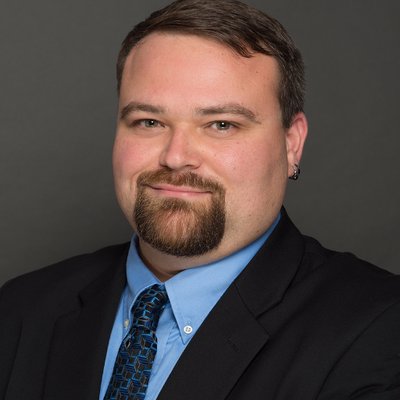 |
Jason Brinkley is a biostatistician, data scientist, and health researcher who works out of the greater Raleigh, NC area. An NC State graduate, Brinkley has previously worked at East Carolina University, the American Institutes for Research, and Abt Global. He is currently Associate Professor of Biostatistics at Northwell Health. Brinkley is the 2025 Chair-Elect for the ASA Health Policy Statistics Section. In his spare time, he does his best to not lose at Mario Kart World to his four children. |
 |
Dominique Foster is the Director of People Analytics Research at The Coca-Cola Company. Dom has a proven, varied background in organizational research and consulting applied across tech, academic, professional services, and consumer goods industries. Throughout his people analytics career, he has worked closely with business leaders and HR partners to identify and execute on analytics projects that help create, guide, or advance strategic efforts. Dom earned his Ph.D. in Industrial-Organizational Psychology from North Carolina State University, where he taught Leadership and HR Analytics courses at the undergraduate level in the Poole College of Management. He has also published research related to institutional transformation and psychological measurement development. He is based in Atlanta, GA, where he enjoys attending festivals, exploring new social scenes, practicing yoga, and ballroom dancing. |
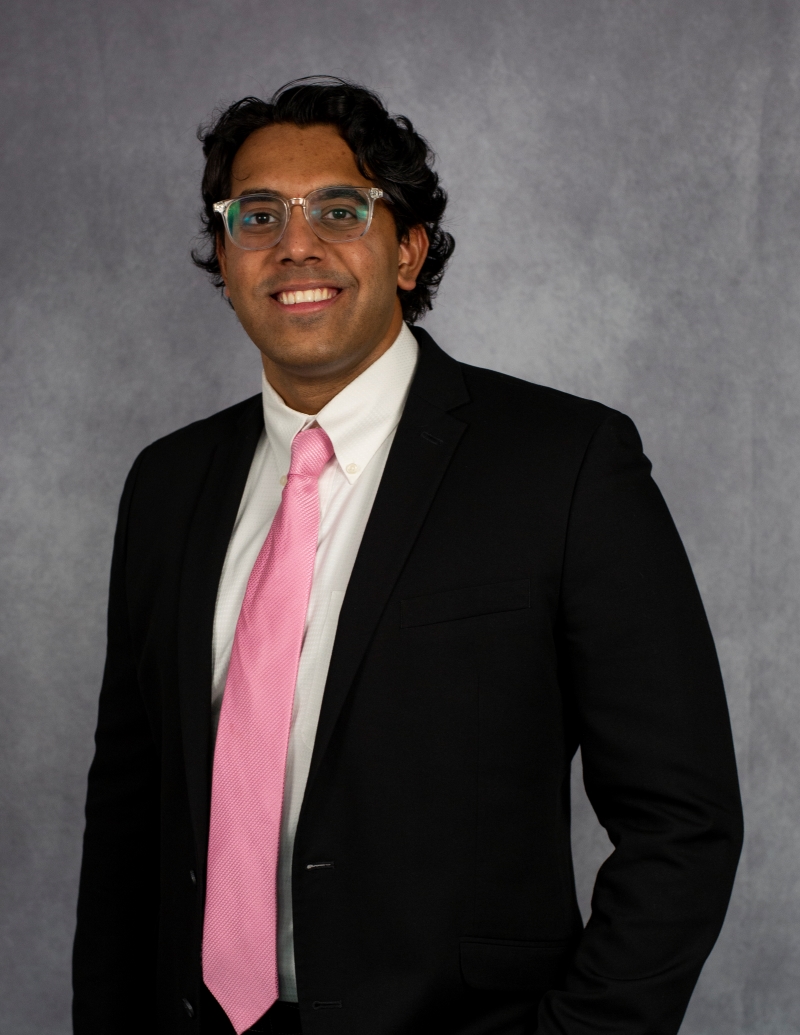 |
Rohit Kandala is a Data Scientist at Harmony Labs who uses data to explore and explain complex social phenomena. Previously, he worked on the Harris Presidential Campaign’s Internal Polling Team, where he managed a survey, end-to-end, analyzing how recent news coverage shaped public perception and shifted the state of the race. He’s also worked as a Political Consultant where he managed large-scale digital advertising campaigns aimed at persuading and mobilizing voters. Rohit holds a Masters of Science from the University of Chicago in Computational Analysis and Public Policy, and a Bachelor of Arts in History, Philosophy, and Communications from the University of Connecticut. |
Automating Repetitive Reports with Quarto
Friday, October 24th, 1-2 Eastern/12-1 Central
Writing reports often means repeating the same tasks: copying results, updating text, and exporting to different formats. Quarto is a technical publishing tool that streamlines this process by combining text, code, and visuals together in one document. Instead of rewriting the same report with minor changes, you can generate multiple versions from a single template. In this webinar, we’ll walk through practical examples, such as client-specific reports and recurring updates, to show how Quarto helps you save time, reduce errors, and deliver consistent, professional reports.
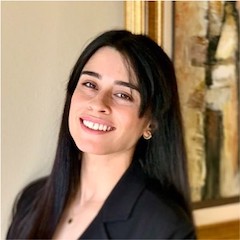 |
Isabella C. Velásquez is a content strategist, data enthusiast, and author with a strong background in analytics and a passion for leveraging data to drive informed decision-making. She holds a Master's degree in Analytics from the University of Chicago. In her current role as a Senior Product Marketing Manager at Posit Software (formerly RStudio), Isabella produces compelling content that effectively communicates how Posit products can address the needs of target audiences and enhance workflows. |
Level-Up Questionnaire Design
Friday, November 7th, 1-2 Eastern/12-1 Central
Researchers and practitioners with basic questionnaire design skills can use best practices to produce survey questionnaires that follow basic guidelines about wording, question type, and question order. This webinar will focus on moving beyond basic questionnaire design skills to focus on more advanced skills. These fall into three categories. First, this webinar will cover the importance of knowing how to effectively design studies to evaluate different questionnaires to provide generalizable knowledge and guidelines about questionnaire design. This includes both experimental design skills and measuring and analyzing key indicators of data quality. Second, this webinar will cover the theoretical perspectives that can be applied to questionnaire design and how students might take these into account in developing and evaluating questionnaires. Third, this webinar will cover considerations in multi-mode surveys and how to maximize data consistency across modes.
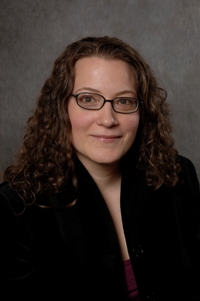 |
Allyson Holbrook is professor of public policy, management, and analytics and psychology (by courtesy) at the University of Illinois Chicago. Her research and teaching are in the areas of research methods, data analysis, and public opinion research. She is a former MAPOR conference chair and president and a MAPOR Fellow. |
Warning: Invalid argument supplied for foreach() in /home/n8voaukfa38l/public_html/wp-content/plugins/post-grid/includes/post-grid-layout-elements.php on line 2921
It’s time to elect the next MAPOR council members to begin roles in November 2025. We currently have three positions open for election: Vice-President/President-Elect, Associate Conference Chair, and Associate Secretary-Treasurer. After roughly a month of open nominations, we’ve got some wonderful candidates running this year. Their bios are below.
If you have any questions, please don’t hesitate to reach out to president@mapor.org.
Vice-President/President-Elect
Paul DiPerna | EdChoice

Paul DiPerna is Vice President of Research and Innovation at EdChoice, where he has led the research program since 2010. Paul’s work centers on surveys and polling about American K–12 education and schooling. He directs the monthly EdChoice Public Opinion Tracker and oversees the annual Schooling in America Survey. Previously, Paul worked for six years at the Brown Center on Education Policy at the Brookings Institution. He received his MA in Political Science at the University of Illinois Urbana-Champaign and his BA in Political Science at the University of Dayton.
Paul currently serves as an at-large member on MAPOR’s Executive Council and for the last three years he has contributed to the Awards, Grants, and Support Committee. During this time he has also co-led MAPOR’s Student Fellowship program and travel grant efforts. Paul has been a member of MAPOR since 2014 and AAPOR since 2009.
Associate Conference Chair
Erik Nisbet, Ph.D. | Northwestern University

Erik Nisbet is the Owen L. Coon Professor of Policy Analysis & Communication at Northwestern University and Director of the Center for Communication & Public Policy. His research examines public opinion and political behavior in the United States and abroad, employing survey, experimental, and computational methods. He received his Ph.D. in Communication from Cornell University, after working for seven years in market research and six years at the Cornell Survey Research Center.
Erik’s involvement with MAPOR began as a first-year master’s student at Cornell in 2002, with his co-authored paper participating in the MAPOR Fellows Student Paper Competition. Since then, he has remained an active participant in the conference as both a graduate student and faculty member. Over the past year, he has served on the MAPOR Executive Council contributing to the Online Learning Committee and currently mentors a MAPOR Student Fellow.
In addition to MAPOR, Erik is active in the World Association of Public Opinion Research, recently editing a special issue of the International Journal of Public Opinion Research and delivered the keynote lecture at the 2025 WAPOR Annual meeting in St. Louis. He looks forward to continuing his service to MAPOR as Associate Conference Chair.
Miranda Kaye, Ph.D. | University of Chicago
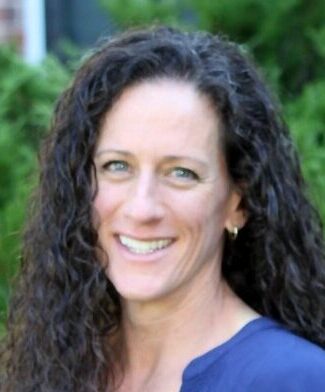
Miranda Kaye is the Director of the Survey Lab at the University of Chicago. Prior to joining the Survey Lab, she served as the Director of the Survey Research Center at the Pennsylvania State University where she began her AAPOR and PANJPOR memberships. She has served as the chair of a number of academic committees as well as of the State College Friends School Board of Trustees. Since coming to Chicago, she is an active member of MAPOR.
Miranda completed her B.S. in Human Development at Cornell University, her M.S. in Exercise Science at Arizona State University, and her Ph.D. in Kinesiology at the Pennsylvania State University. She has over 15 years of experience in all phases of survey research, including teaching undergraduate and graduate research methods and statistics classes, specializing in projects involving large-scale, multi-modal, longitudinal, field, mixed-methods, and RDD data collection, and providing leadership to academic research centers. In her own research, she applies multivariate methods to the study of human development, health, and well-being with a focus on scale development, measurement, and program evaluation. She loves examining metadata and considering ways to improve methodology as well as supporting the varied projects and methodical needs of researchers.
Associate Secretary-Treasurer
Caroline Smith | Morning Consult
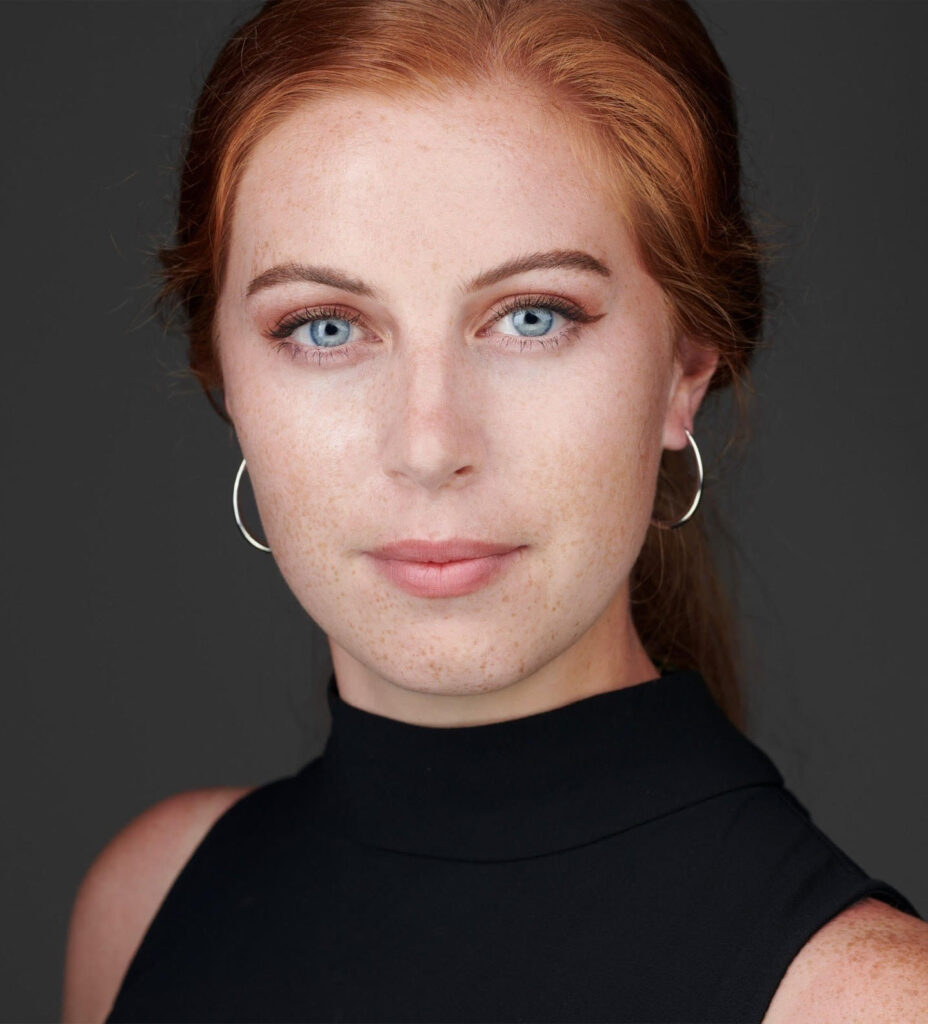
Caroline Smith is the Director of Content Research at Morning Consult. She works on a wide variety of polling, including politics, economics, and market research for financial services, travel, and retail industries. Prior to Morning Consult, she worked at N.O.R.C. in the Public Affairs and media research department. Caroline received her B.A. in Political Science and International Relations and her Master’s degree in Political Science from Loyola University Chicago, and she began attending the MAPOR conference in 2018. Caroline is currently a member-at-large on the Executive Council and she looks forward to continuing her service to MAPOR as Associate Secretary-Treasurer.
Nadia Assad | University of Wisconsin Survey Center
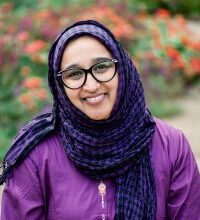
Nadia Assad is a Senior Project Director at the University of Wisconsin Survey Center (UWSC), where she has been a key member of the project directing staff since 2014. She brings extensive experience in survey research administration and methodology.
Nadia began her career in survey research as a telephone interviewer and quickly advanced through roles including shift leader and project director. Her experience with multiple areas of survey operations at the UWSC has made her a key member of the Center’s team. In addition to overseeing complex web, mail, and mixed-mode survey projects, she also provides extensive methodological guidance to clients and colleagues on questionnaire design and layout.
Nadia currently serves as the study director for a state-level panel at UWSC, further demonstrating her expertise in managing large-scale, longitudinal research initiatives. Through her work as a survey methodologist, Nadia has contributed to scholarly publications in journals including Public Opinion Quarterly and Field Methods. Nadia holds a Master’s degree in Sociology from UW–Madison and has taught Sociology courses at both UW–Madison and Madison College. Prior to her work in the U.S., she contributed to internationally funded research projects by organizations such as the World Bank and United Nations Development Program.
Since 2023, Nadia has been an enthusiastic participant in MAPOR’s annual conference, presenting papers at both events. She deeply values the organization’s commitment to methodological rigor and innovation, and its welcoming, intellectually vibrant community that supports professionals at every stage of their careers. Her engagement with the conference has been both professionally enriching and personally inspiring.
As a nominee for Associate Secretary-Treasurer, Nadia brings a strong foundation in research leadership, a commitment to methodological excellence, and a collaborative spirit. She is excited about the opportunity to support MAPOR’s mission and contribute to its continued success.
Warning: Invalid argument supplied for foreach() in /home/n8voaukfa38l/public_html/wp-content/plugins/post-grid/includes/post-grid-layout-elements.php on line 2921
The Midwest Association for Public Opinion Research (MAPOR) invites eligible students to enter the association’s MAPOR Fellows Student Paper Competition. Two winning papers, the Doris A. Graber Award in Public Opinion, and the Allan L. McCutcheon Award in Survey Research Methodology, will receive $500 and one free conference registration. The winning papers also will be accepted for presentation during a session at the May 2026 AAPOR conference.
2025 Student Paper Competition
DEADLINE: September 30, 2025.
To be eligible for the award, students must submit a full paper for review to by the date above.
a) Criteria: The topic of the paper must fall under one or both of MAPOR’s general areas of scholarship, which are (1) public opinion and (2) research methods in public opinion and survey research. When submitting, the author(s) must indicate the topic for which the paper should be considered. The papers need not be quantitative, nor must they report data to qualify for consideration in this competition. Each student may be an author on only one paper submitted to the competition. Papers up to 6,500 words excluding the abstract, tables, figures, and references. The papers will be judged based on the quality of research design, originality, significance, organization, and presentation.
b) Eligibility: To be eligible to enter the student paper competition, students :
- Must be enrolled in a graduate or undergraduate program at the time of submission OR received a graduate or undergraduate degree in Winter/Spring/Summer of the award year. Students need not be members of MAPOR but are expected to present at MAPOR of the award year.
- Cannot have already won a MAPOR Student Paper Award as an author or co-author.
- Cannot submit the same paper over multiple years.
- Papers submitted to this competition should be primarily students’ work, although student author(s) are encouraged to seek advice from a faculty mentor or mentors. This does not preclude recognizing the faculty mentor as a co-author on a later paper that is based on or incorporates some of the work in the student paper. In most cases, the student would be the first author on such a later publication. In cases where faculty mentor(s) are co-authors, in addition to completing the faculty form (see below), a letter must be provided by the faculty mentor or mentors affirming that the student wrote the paper submitted and describing the role(s) the student(s) and faculty played on the paper following Contributors Roles Taxonomy (CRediT) guidelines found here.
c) Award: Each award winner will receive $500 and one free MAPOR conference registration to attend the 2025 MAPOR conference and present their paper. Additionally, the author(s) of the winning paper will be expected to present their research with a guaranteed spot on the Conference Program at the 81st Annual AAPOR National Conference (2026).
d) Award Committee: The winning paper and honorable mentions (if applicable) will be selected by a review committee composed of last year’s MAPOR fellow, previous MAPOR fellows, and invited subject-matter reviewers who are MAPOR members.
e) Submission Procedure:
1. Submit an abstract to the MAPOR conference at mapor.org. In addition to a title and abstract, you will be asked to provide all authors' names, institutional affiliations, and email addresses. Students must provide one or more faculty mentor’s name and e-mail address when submitting their abstract. Abstracts can be submitted until _____.
2. Students who have been accepted for the 2025 conference can have their papers considered for the MAPOR Student Paper Competition. Here are the requirements:
- Follow AAPOR Code of Professional Ethics & Practices and make sure this information is included in the appropriate places in the manuscript. (Please pay particular attention to the disclosure elements in Section III).
- A blinded version of the manuscript must be submitted, wherein all identifiable information about the author(s) and faculty members, acknowledgments, funding information, and other identifiable information is removed or redacted from the manuscript.
- The blinded manuscript must contain the abstract, the body of the paper, all references, all tables and figures, and any appendices.
- If possible, limit self-citations, and, if using, include them in the third person.
- A separate title page containing all author information, including name(s), University affiliation, acknowledgments, funding information, contact information, word count, and the title of the paper.
- Submit all documents in either Word or PDF format.
- Provide the contact information for a faculty mentor/co-author. If you do not have a faculty mentor, please choose a faculty mentor who will review and attest that the paper submission to ensure it meets professional standards of readability, grammar, and so forth. This ensures that the reviewers can attend to the substance of the paper.
- The faculty mentor that the student identifies will also be sent an email asking them to complete an online form which must be completed for a student to be eligible to win the competition. This form will ask them to:
- List the name of the student entering the competition;
- Confirm that the submission meets professional standards; and
- Briefly describe the student’s or students’ role and contributions to the paper following theContributors Roles Taxonomy (CRediT) guidelines found here.
- A member of MAPOR’s executive board will reach out to all students after the abstract submission deadline to confirm details for paper submission to the competition.
- Full papers must be submitted to MAPOR by September 30th, 2025, by 11:59 PM Central Time.
Winners will be announced at the Friday Awards Session at the MAPOR conference.
It is possible that in any given year, the committee may determine that no paper meets the threshold for granting an award.
Questions may be addressed to either Mary Losch (mary.losch@uni.edu) or Curtiss Engstrom (cwengstr@umich.edu).
Warning: Invalid argument supplied for foreach() in /home/n8voaukfa38l/public_html/wp-content/plugins/post-grid/includes/post-grid-layout-elements.php on line 2921
The Midwest Association for Public Opinion Research Conference Committee is hard at work planning MAPOR’s 50th annual conference.
November 21-22, 2025
Embassy Suites Chicago Downtown
600 N. State Street
Call for Abstracts
Submit By September 6 (extended from August 15), 2025
The Midwest Association for Public Opinion Research’s annual conference welcomes abstract submissions on any topic related to public opinion research, communication, or survey research methodology. This year, we are accepting submissions for the following types of presentations: papers, posters, and panels of papers.
“Fifty Years of Measuring Change: Where we were, where we are, and where we’re going”
This year’s milestone conference will celebrate the role that MAPOR has served for generations of students, academics, researchers, and others in public opinion research. We will highlight the history of MAPOR and its contributors, trends in public opinion research, and changes in how we measure social and political issues over the last half century. We will also look ahead to where the field of public opinion research is going and the present-day ideas, topics, and challenges that shape public opinion research and MAPOR today and into the future.
We encourage abstract submissions on all facets of research related to public opinion, communication, survey research, and their methodologies. Topics may include but are not limited to: politics and public opinion; social media and public opinion; journalism, media, and public opinion; public opinion on social, economic, and political issues; questionnaire design; data collection issues and strategies; existing and new methods for collecting data from respondents; online panel data collection; nonresponse; total survey error; machine learning, artificial intelligence, big data, and data science; location and geographic information; challenges facing the field due to technological and societal shifts; the ethical use of public opinion and survey data; qualitative and mixed-method research techniques; cross-cultural research; hard-to-reach and historically underrepresented populations; and data quality issues. For this special anniversary, we also encourage submissions related to the history of MAPOR and the field of public opinion research.
Submissions: Abstracts of 300 words or fewer can be submitted here. In addition to a title and abstract, you will be asked to provide the name, institutional affiliation, and email address for all authors. The same author’s name may appear as first author on a maximum of two submissions. To allow for blind review, please remove all personally identifying information from the abstract’s text before submission.
Note to student authors: If the lead author is a student who will be enrolled in an undergraduate or graduate program at the time of the conference, you may submit your paper to the MAPOR Fellows Student Paper Competition (see additional information on the MAPOR Fellows Student Paper Competition, available at www.mapor.org). When submitting a student paper to the competition, the student submitter will be asked to provide the name and e-mail address of a faculty mentor, who will need to endorse the paper when it is submitted. The student paper competition team committee will reach out after the abstract submission window has closed. If you have questions, reach out to president@mapor.org.
Panel Proposals: A panel is a session that focuses on a common theme and includes 4 or 5 participants. A panel proposal requires a description of 300 words or fewer discussing the issues to be addressed and their importance. Also, submissions should list the potential panelists, their institutional affiliations, email addresses, and tentative titles of presentations. Panels related to the conference theme are especially encouraged.
Submission Information: All abstracts must be posted no later than 11:59pm CDT on Friday September 6, 2025 (extended from August 15). Accepted papers sharing a theme will be scheduled during a paper session. Papers with more individualized topics will be scheduled during a poster session. MAPOR considers both types of presentation equally valuable. All submitters will be notified via e-mail by September 6th of their abstract’s acceptance status. For questions or problems with the submission process, please contact the 2025 MAPOR conference chair, Beth Fisher at: abstracts@mapor.org.
Travel Grants: The MAPOR Council will be offering two types of support grants for the Annual Conference: the MAPOR Student Support Grant and the MAPOR Colleague Grant. More details on these awards can be found here: http://www.mapor.org/support-grants/.
Warning: Invalid argument supplied for foreach() in /home/n8voaukfa38l/public_html/wp-content/plugins/post-grid/includes/post-grid-layout-elements.php on line 2921
Political Polling Insights for Survey Professionals: Margins, Metrics, and Methodology
Friday, April 11th, 1-2pm CT: Polling 101: The Who, What, Why, and How of Modern Political Polling?
Friday, April 25th, 12-1 CT: New Measures of Selection Bias for Pre-Election Polling
Friday, May 2nd 12-1pm CT: Election Polling in the "Blue Wall": Lessons from Michigan and Wisconsin
The Midwest Association for Public Opinion Research (MAPOR) is pleased to announce “Political Polling Insights for Survey Professionals: Margins, Metrics, and Methodology” a three-part webinar series offering a deep dive into the world of political polling. While not all survey professionals work in political contexts, the challenges, innovations, and lessons emerging from election polling offer valuable insights for the broader survey community.
Whether you're looking to sharpen your methodological toolkit with lessons learned from political polling or better understand how election polling intersects with your work, this series brings timely, relevant perspectives to the table for any survey professional.
This webinar is free for MAPOR members and all students.
Polling 101: The Who, What, Why, and How of Modern Political Polling?
Friday, April 11th, 1-2pm CT
In this webinar, we will cover the basics of modern political polling. We’ll discuss the types of polls that are often conducted, the methods and modes that are often used, and the unique challenges and opportunities that face the polling industry. We’ll situate political polling in the total survey error framework, assess the overall accuracy of the polling industry in recent years, and discuss nonresponse bias and changes people in the industry have made to address it.
 |
Joy Wilke is the Polling Director at Blue Labs, a progressive data and analytics firm. At Blue Labs, Joy’s team is responsible for survey data collection across the organization, where they work on everything from questionnaire design, sampling, weighting, programming, and budgeting. She’s worked in polling for 13 years, and has previously held polling positions at Civis Analytics, the Democratic Congressional Campaign Committee, and the Gallup Organization. Joy has her Master’s in survey methodology from the University of Michigan, and her PhD in political science from UCLA. |
New Measures of Selection Bias for Pre-Election Polling
Friday, April 25th, 12-1 CT
Recent developments in survey statistics have yielded simple, novel measures of the non-ignorable selection bias in estimates of means, proportions, and regression coefficients that may arise due to deviations from ignorable sample selection, where these deviations might be introduced by the sampling mechanism (e.g., non-probability sampling) or survey nonresponse. This webinar will review the computation of these indicators, the data required to compute them, software tools for computing them, and examples of their use and interpretation based on real survey data. An illustration of the use of these measures to assess the selection bias in pre-election polls conducted for the 2020 presidential election will be presented, followed by discussion of the results and suggestions for future research.
 |
Brady T. West is a Research Professor in the Survey Methodology Program, located within the Survey Research Center at the Institute for Social Research on the University of Michigan-Ann Arbor (U-M) campus. He earned his PhD from the Michigan Program in Survey and Data Science in 2011. Before that, he received an MA in Applied Statistics from the U-M Statistics Department in 2002, being recognized as an Outstanding First-year Applied Masters student, and a BS in Statistics with Highest Honors and Highest Distinction from the U-M Statistics Department in 2001. His current research interests include the implications of measurement error in auxiliary variables and survey paradata for survey estimation, selection bias in surveys, responsive/adaptive survey design, interviewer effects, and multilevel regression models for clustered and longitudinal data. He is the lead author of a book comparing different statistical software packages in terms of their mixed-effects modeling procedures (Linear Mixed Models: A Practical Guide using Statistical Software, Third Edition, Chapman Hall/CRC Press, 2022), and a second book entitled Applied Survey Data Analysis (with Steven Heeringa and Pat Berglund), the third edition of which will be published by CRC Press in April 2025. He was elected as a Fellow of the American Statistical Association in 2022. |
Webinar 3: Election Polling in the “Blue Wall”: Lessons from Michigan and Wisconsin
Friday, May 2nd 12-1pm CT
Panelists: Emily Swanson (The Associated Press), Charles Franklin (Marquette University) & Barry Burden (University of Wisconsin-Madison)
Moderator: Erik Nisbet, Northwestern University
A moderated panel of academic and industry experts will discuss polling performance in key Midwestern states, examining the forces that influenced outcomes and how polling methodology is evolving in these politically pivotal regions.
 |
Emily Swanson is director of public opinion research at the Associated Press, where she directs AP's polling team and election night decision desk. The decision desk analyzes vote returns, historical data, and the results of AP VoteCast, AP’s pioneering election research survey, to determine when AP officially calls the winner in elections across the country and explains to the world how we know. Swanson played a key part in the development of AP VoteCast. She also oversees polls conducted by the AP-NORC Center for Public Affairs Research. |
 |
Charles Franklin (Ph.D, Political Science) is Professor of Law and Public Policy at Marquette Law School, where he directed the Marquette Law School Poll, ranked 2nd of over 500 pollsters nationally by Nate Silver. Prior to Marquette Law School was Professor of Political Science at the University of Wisconsin Madison for 22 years before leaving to join the Marquette Law School in 2012. He is past president of the Society for Political Methodology and an elected Fellow of the Society. From 2002 to 2020 he was a member of the ABC News election night Decision Desk. |
 |
Barry Burden (Ph.D., Political Science) is Professor of Political Science, Director of the Elections Research Center, and the Lyons Family Chair in Electoral Politics at the University of Wisconsin-Madison. Burden's research and teaching focus on U.S. elections, political parties, public opinion, representation, and the U.S. Congress. His recent research examines aspects of election administration and voter participation. Burden earned his Ph.D. at The Ohio State University and was a faculty member at Harvard University before joining UW-Madison in 2006. |
Stay in touch with MAPOR!
Members of MAPOR can Join the MAPORNet listserv, where members ask questions to one-another, share information about events and jobs, and hear about updates in the field. To join, contact MAPOR’s Secretary-Treasurer.
